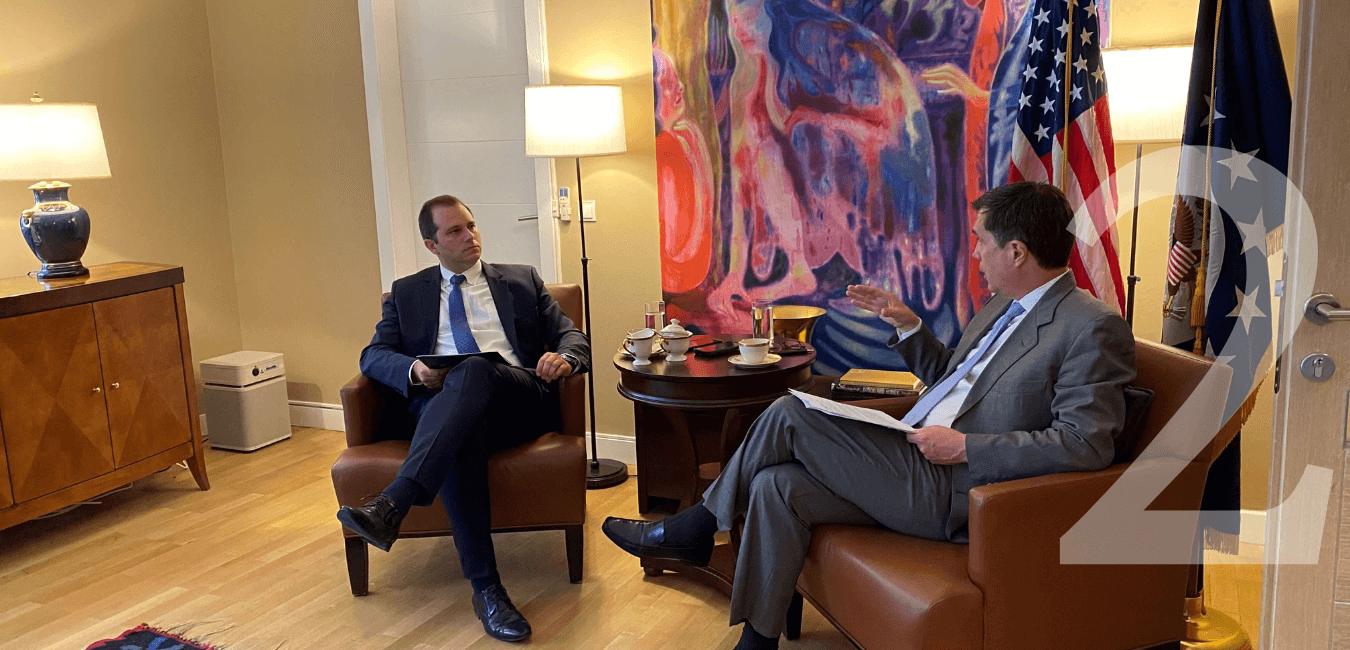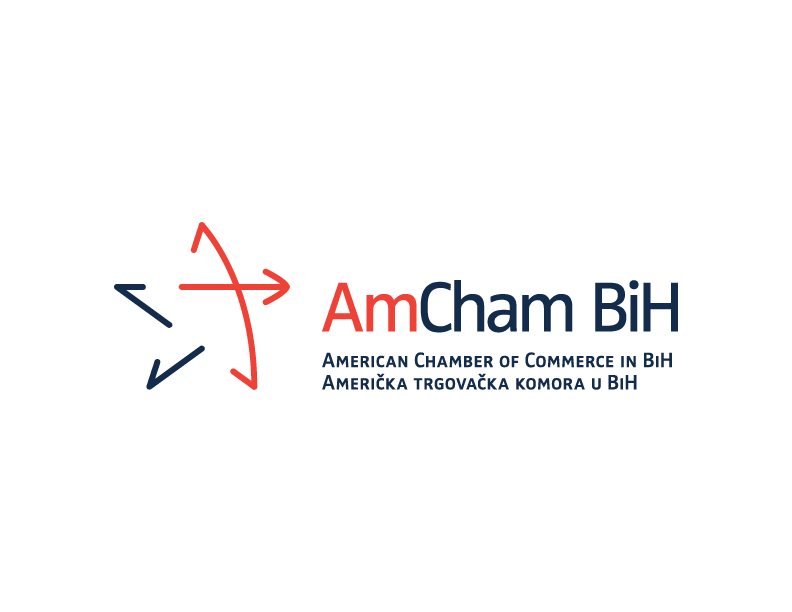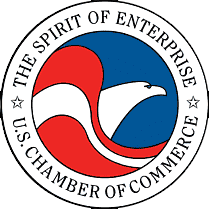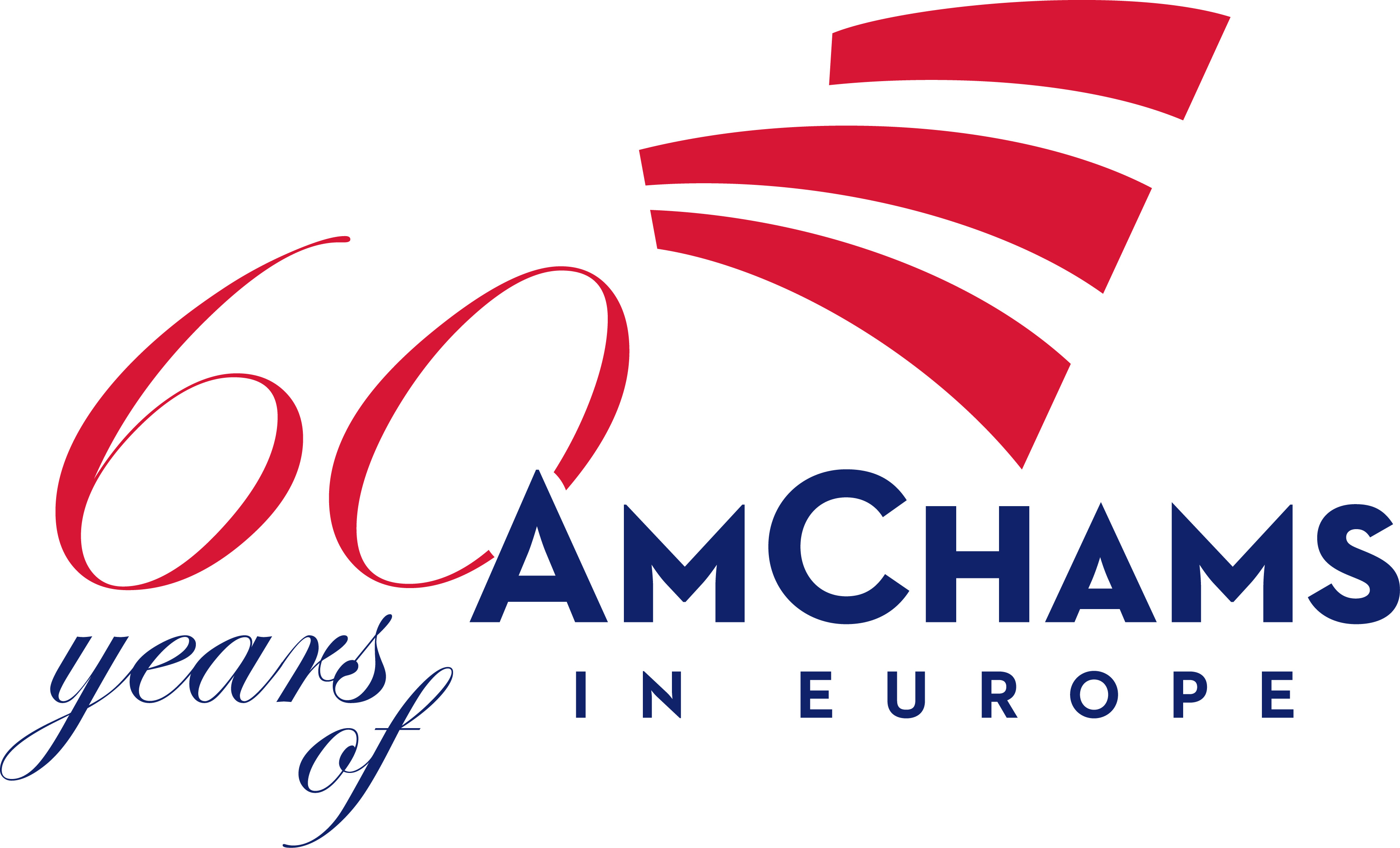Interview with U.S. Ambassador to BiH , H.E. Eric Nelson
(Please click here for the part I)
Nedim: Finding quality workers is a concern for our members, we would be interested in hearing your thoughts on how AmCham can help by advocating for additional reforms to education and develop a better, more experienced workforce for the future?
Ambassador: I know that many members of the AmCham have been engaging on this issue and are concerned about the issue. The relatively poor preparation of many students to take on jobs in the modern economy is something I hear as a problem from many businesses. Curricula needs to be updated; training needs to be upgraded. Educational institutions need to think about partnering with businesses and pay attention to what the market needs in order to update curricula and training to meet the needs of the market. This is important not only for businesses to find talent that is easy to hire and easy to put to work. Regarding the supply of well-trained employees I see a lot of opportunity for AmCham members and all employers to engage with political leaders and educational leaders to advocate for reforms and progress in educational standards in the country. One is to advocate for standardized testing like PISA. This way the results of educational institutions are compared to all the other countries in the region and all the members of the OECD. You must assess the results and see how you are doing. Everyone who has participated in PISA has found that metric as an important path to deciding on reforms and advancement in their education sector. Therefore, it is very important for BiH to join this and I hope that business leaders will advocate for that. On the day-to-day level, I see business leaders trying to work with education partners and the regulatory, legal framework for that is very limited. Many businesses would like to hire interns. Many businesses would benefit from and would invest in apprenticeship programs. Unfortunately, the framework for those programs in BiH is not favorable. Members should engage, together with the international community, who under the leadership of the OSCE, UNICEF and the EU are looking at these issues and trying to encourage reforms and smart investments. Having AmCham members join that advocacy is very important. I know UNICEF has been trying to organize those voices. I know it would be very valuable to improve that framework for internships and apprenticeships to the benefit of students, to the benefit of educational institutions and the benefit of business.
Nedim: Keeping our best and brightest talent here in BiH is an issue that AmCham is looking to address by developing a young leaders program to help stop the “Brain Drain” that is so prevalent today. Why is it so important for young people in BiH to stay here and be part of the solution?
Ambassador: It is important for them to stay in BiH because they are the country’s best resource. The human capital of Bosnia and Herzegovina is very formidable. Sadly, that capital is often only unleashed when people leave. There are two million Bosnia and Herzegovina citizens as members of the diaspora who are succeeding. And many young people here find a lack of opportunity, a lack of perspective. It is a negative environment where the prevailing rhetoric is about instability and division in the past, instead of the potential of the country and the path for a better future. As I talk to the young people across the country, I hear many of them saying: “I know there are better opportunities waiting for me in Germany, Austria, Switzerland, Sweden, but why do I have to leave my country to have a better future?” Those who say that, we have found, are very interested in receiving help to learn how they can make a difference here locally. That is why the Embassy set up the “BOLD” program to create more opportunities for them to develop those skills as civic leaders or as entrepreneurs -- engaging with their community to make a difference to be a part of positive change, or to engage as an entrepreneur to start a venture. We have more than 2500 young people signed up for BOLD, and they are benefiting from workshops and from fellowships in the United States, from access to grants, and mentors, where they can learn those skills and make a difference and go against the prevailing rhetoric that is so negative, and prove that they can improve their community, they can improve their prospects, like so many Bosnians and Herzegovinians have proven in the last 25 years. So, AmCham’s investment in that kind of leadership development and leadership support whether it is to entrepreneurs or to community leaders, is very important to developing and empowering that small but powerful minority of young people who are not satisfied with the status quo and want to make a positive difference here in BiH.
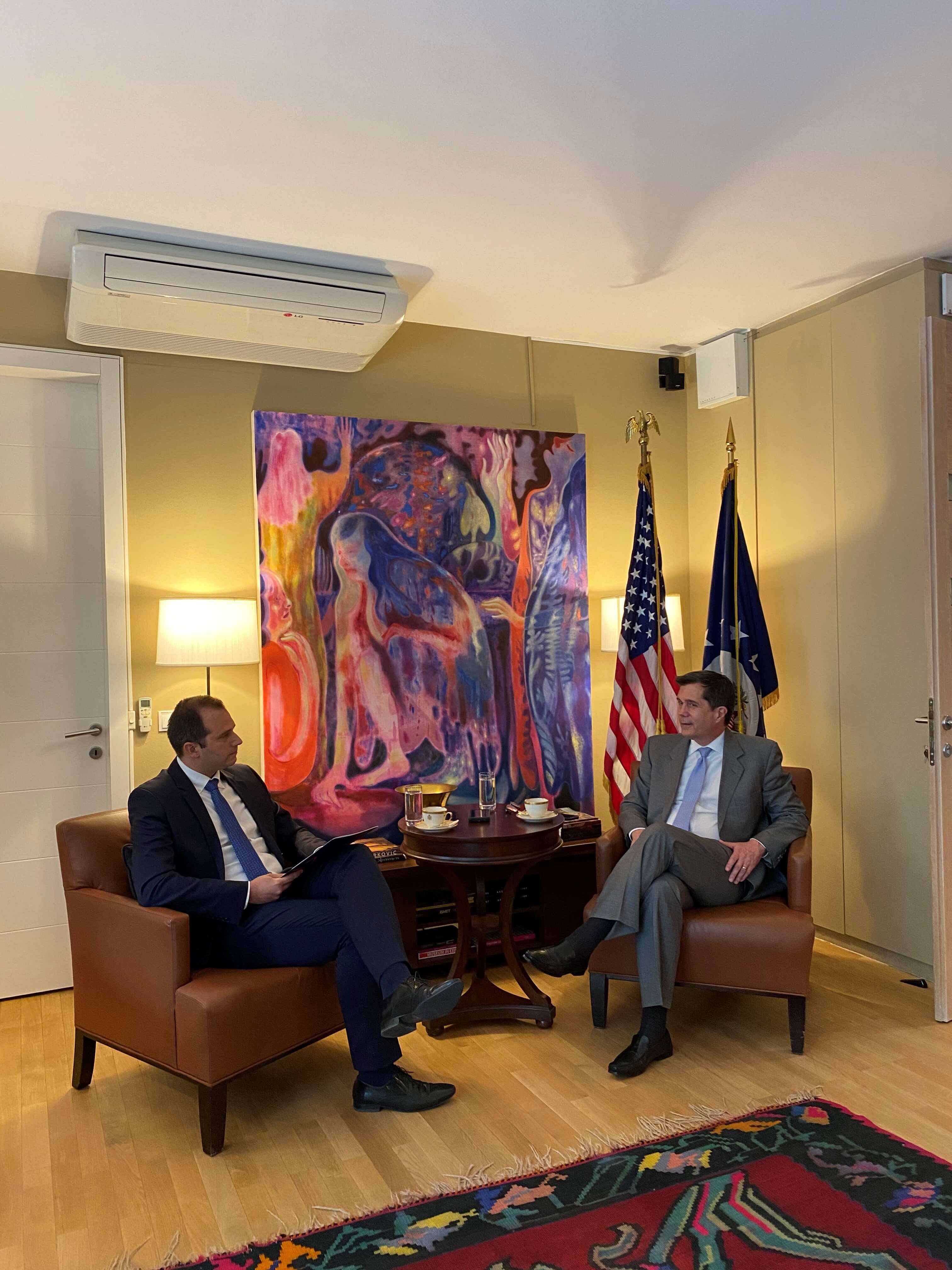
Nedim: AmCham is part of the AmCham Europe network promoting the idea that we are all a part of one region. How can BiH better participate in regional initiatives, and would that serve as a method for improving our business climate?
Ambassador: The United States believes in the fundamental importance of BiH following a path to integration into the Euro-Atlantic community. Rising to Euro-Atlantic and EU standards is the key to expanding security and stability and prosperity here. That’s what it’s all about. Think about the four freedoms that the EU captures so well: the freedom of movement of capital, the freedom of movement of services, the freedom of movement of goods, and the freedom of movement of people. I think businesses are very familiar with where those freedoms are weak, where they are lacking, and they know there is a cost associated with that. Eliminating that cost by integrating yourself to the same standards creates more and more prosperity. Now the road to rising to EU standards is a long and steep road. But every improvement in those standards, every expansion of those four freedoms, benefits citizens. AmCham members, by linking up with AmChams across this region and across Europe, can engage in the kind of dialogue that identifies where these freedoms are the weakest and think about what we need to do to improve the opportunity that is untapped. Here within the Western Balkans, there is a lot of room for improving these four freedoms. There has been increased talk since last year of what some people call “the mini-Schengen” concept. Mini Schengen is a poor shorthand, for the opportunity that really exists, which is advancing those four freedoms here among the Western Balkans. One example is mutual recognition of ID cards and mutual recognition of professional certificates. This is something that Kosovo and Serbia been working on and it’s helping to improve and stabilize the relationship there. It is something where BiH is even behind Serbia in terms of its relationship with Kosovo. The Western Balkans is an economic space, but the more divided that economic space is, the more difficult it is for businesses and for consumers. Consumers have to pay extra costs and businesses are limited in their ability to grow and expand and offer more jobs. Because of these issues in the region, I think that collaboration among the Chambers can help identify where the opportunities are and encourage leaders to focus on those and create more of a single economic space here in the Western Balkans. This is equally important here in BiH, where the two entities and Brčko district should be a single economic space.
Nedim: I wanted to ask about philanthropy and the importance of philanthropy in BiH and changes of the legal framework and importance of raising awareness?
Ambassador: The United States has the highest level of philanthropy of any economy. We see philanthropic engagement as a key driver of improvement and investment in any community. We see how important it is for citizens to be able to be engaged, for businesses to be able to be engaged, in a positive way. Here in BiH, USAID has created a new assistance program called Local Works that recognizes that engagement of businesses and citizens in philanthropic and community activities can be an important part of positive change. To stimulate and support that you need a good legal framework. You need government deciding that we encourage this, we support this, we welcome this. That is why we set up Local Works with the Mozaik Foundation, to examine what is the framework that hinders instead of supports philanthropy. There was an event recently where many AmCham members were involved, and I saw a lot of posts on LinkedIn where they are eager to engage on this because I think that every AmCham BiH member has a corporate social responsibility component. They are thinking about the community in which they operate and how they can contribute to the community and help the community solve problems or help their employees help the community solve problems. Good businesspeople know this is a smart business investment, but the law needs to catch up with that.
Nedim: Ambassador Nelson, I want to thank you for taking time to discuss these important issues with AmCham and our members. I am sure they will enjoy reading your comments. I would like to close our conversation by asking for your opinion on what is the most important issue for BiH today as a whole and for the business community?
Ambassador: I think the business community agrees with President Biden’s stance that corruption is a fundamental threat. For the U.S. it is a threat to our national security, it undermines democracy, it enables malign influence, it disrupts the business environment, and it discourages investment. Corruption can weaken human rights and obstruct justice. I think business leaders would agree with our focus on the importance of fighting corruption; demanding and expecting limits on corruption, that corruption unchecked is unacceptable. As countries compete for investment and strive to achieve stability and prosperity, corruption is working against it. Every country battles corruption and if you do not take the battle seriously you will fall behind. In 2021, BiH has the opportunity to respond to the 14 key priorities laid down by the EU to be a convincing candidate for membership and at the top of the list of those key priorities is the rule of law. Improving the rule of law to reduce corruption needs to be the priority. I hope businesses will also beat their drum about this, as I am constantly beating this drum, as my partners in the international community are. How do you address the rule of law that is so weak in this country? Well, you start by passing a credible public procurement law, by passing the conflict-of-interest law and by passing reforms to the HJPC (high judicial and prosecutorial council). All of those are on the table and can be done this year. I hope the parties that try to block these reforms are held accountable, and the only way to ultimately hold them accountable, and every citizen in BiH has this ability, is at the ballot box. I hope that businesses would agree that this is the priority and contribute to the dialog about addressing the opportunity, getting it done, and strengthen rule of law in this country. That all this rhetoric about going back to the nineties, as if those were better times for BiH, are a distraction from the real opportunity in hand, for BiH to take important, visible steps in raising the standards to the those of the EU. I hope business leaders and AmCham members would join in making clear how important those issues are. I know how important that is, and it gives me a chance to express my gratitude again for the engagement of AmCham members to come together not as competitors, but as businesses with shared interests, who appreciate that they need to combine their voices, to encourage and urge progress. And I am so happy to see that AmCham has increased its membership. I hope that AmCham will continue to recruit members from across the country and members from across the economy, from small firms to the big firms. You and I saw the whole range in Banja Luka. From diaspora investors to long-time investors. Bringing all these voices together and combining these voices makes a difference and can be an important part of advocating for positive progress in BiH.
Nedim: Thank you for the great interview and thank you for continuously supporting the work we do.
Ambassador: Thank you, It’s a pleasure.









